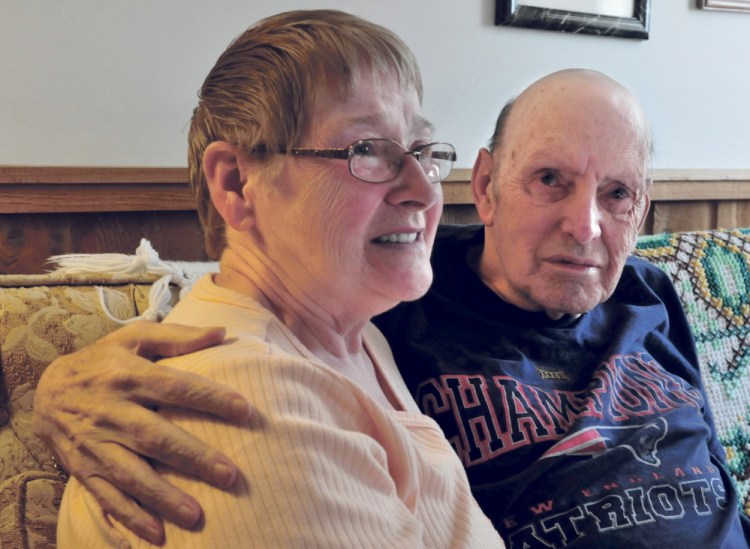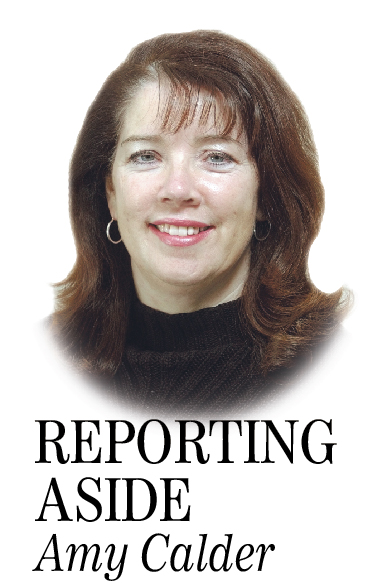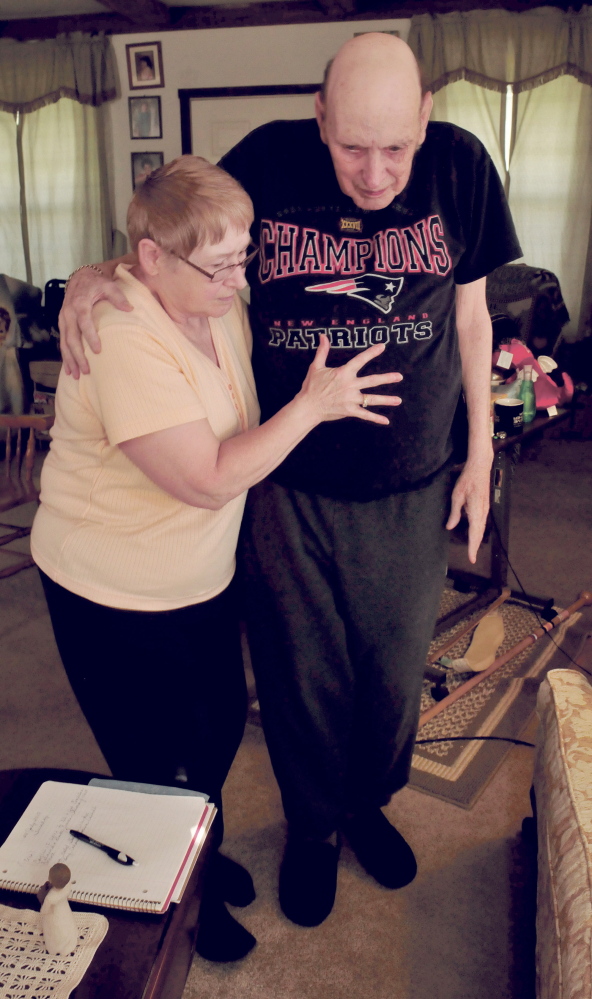David and Dottie Shorey sit in their living room like many other couples, talking about the old days, sharing memories and chatting about their children and grandchildren.
But unlike many other couples, they do not talk about the future.
David, 68, is on hospice care and knows he will not be able to grow old with his wife, whom he loves dearly.
“She’s been a gift to me, that’s for sure,” he said. “If there’s anything I need and can’t do myself, she will.”
David has atrioventricular block, which will progress to a third degree, or complete, block, according to Dottie, a registered nurse. He also is legally blind and has myotonic muscular dystrophy, which weakens and depletes the body of muscle tone so the muscles do not work.
“He’s lost a substantial amount of weight,” said Dottie, 64. “He’s skin and bones. He no longer walks by himself. Myotonic muscular dystrophy is a horrible disease — it’s total depletion of the muscle tone activity. It atrophies even his fingers. This year he’s had increased activity with chest pain. There have been several episodes.”
In December 2013, his doctor recommended Dottie take David to their Palermo home and place him on comfort care, as he had six months or less to live.
“I became very emotional and I really had a rough time,” she said. “I went on short term disability. I felt if he had only six months, I was going to spend the time with him.”
As sometimes happens after such a prognosis — only God knows when our time is up — David lived on and on.
With his wife at his side and a HealthReach medical team for support, he continues to hang in there.
Admittedly, the Shoreys are tough.
Dottie, who was in the U.S. Army Reserves Nurse Corps, and David, a 30-year career sergeant first class with the Maine Army National Guard, are fighting the good fight. He has had several brushes with death and been hospitalized the last couple of years, but his will to live has prevailed.
Thanks to that, the couple has had more time together, yet the stress of his illness has been hard, both emotionally and physically.
While David speaks practically about his illness and impending death and maintains a positive attitude — “That’s the way the cookie crumbles. There’s nothing I can do about it, so why be negative?” — Dottie grieves, knowing she will lose him.
“Every day is precious, and we treat every day that way because we’re not promised tomorrow, so we just treat every day like it’s our last. David’s my best friend. He’s my soul mate. He’s my better half. He’s my partner. David completes my life, and it’s very difficult for the one that’s going to be left behind.”
A big reason the couple is able to spend quality time together during his last days is that they have the support of direct care volunteers from Hospice Volunteers of Waterville Area. While Dottie for a long time did everything herself, she and David realized they needed an extra level of support that only the volunteers can give, they said.
Nancy Sullivan, of Palermo, and Jackie Reny, of Vassalboro, fill that role.
The hospice volunteers come in a few hours a week to sit with David while Dottie goes to appointments or grocery shopping or to have lunch with a friend — time that she must have to rejuvenate. David loves having the women come. They talk about everything under the sun, including about David’s childhood growing up on the Palermo farm where the Shorey’s house now sits.
Sullivan, 76, a volunteer for many years, lives just down the road. She said she adores the Shoreys and the conversations she has with David.
“I just treasure every moment with him.”
Reny, 58, fills in when Sullivan can not be there. Reny said that for the time she puts in with David she gets more joy in return. She plans to take him for a visit to her home, where her husband, Peter, has dozens of antique vehicles.
“I’m looking forward to that,” David said.
He is grateful for Sullivan and Reny’s help when Dottie is away.
“It’s comforting to know someone’s here, just in case I need them. I love to see my wife take a break, but she doesn’t go far from here.”
Hospice Volunteers of Waterville area needs more direct care volunteers like Sullivan and Reny.
According to Susan Roy, the organization’s executive director, only 17 direct care volunteers are active for the 14 clients currently needing support. While Hospice had 30 or 35 direct care volunteers, many have entered the workforce and no longer have the time.
Hospice offers training twice a year for direct care volunteers who provide free non-medical support to families. The next training is in October, Roy said. Those interested should call 873-3615 and speak with Lucie Boucher, direct care volunteer coordinator.
Dottie Shorey said she and her husband are thankful and blessed to have that help.
“For families with a critically ill loved one, it is just so incredibly important to not feel like you’re alone. It is so precious to be able to have those hospice volunteers come into your home and to meet them and get to know them. You develop very close relationships with them.”
Amy Calder has been a Morning Sentinel reporter 27 years. Her column appears here Mondays. She may be reached at acalder@centralmaine.com.
For previous Reporting Aside columns, click here.
Send questions/comments to the editors.




